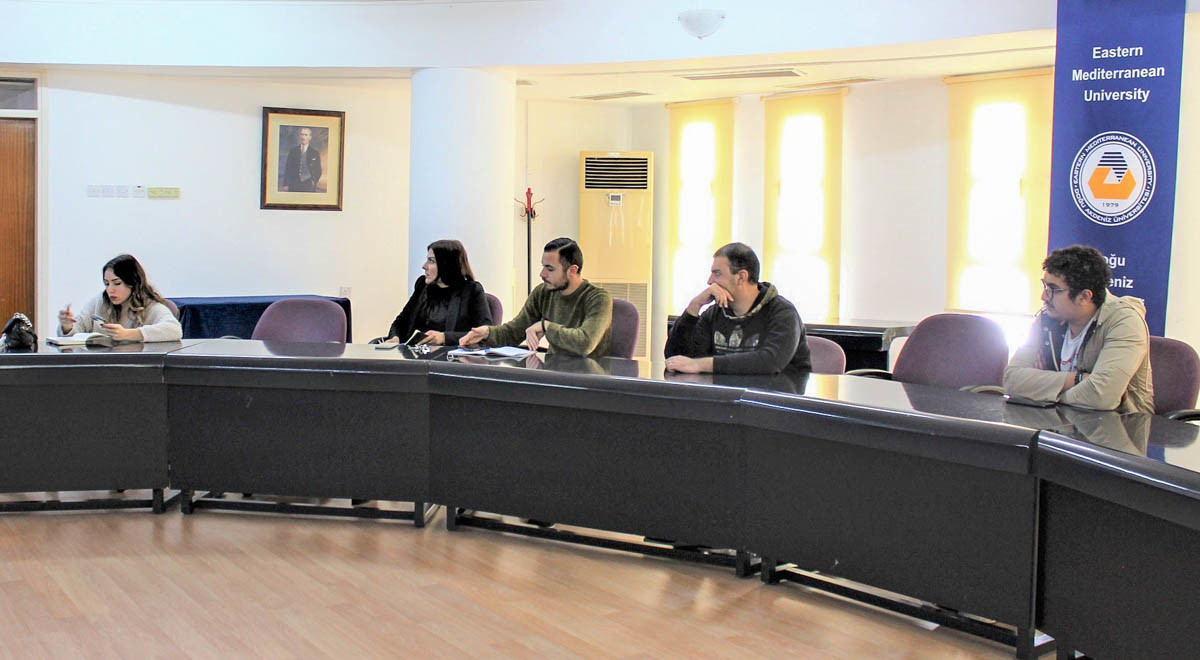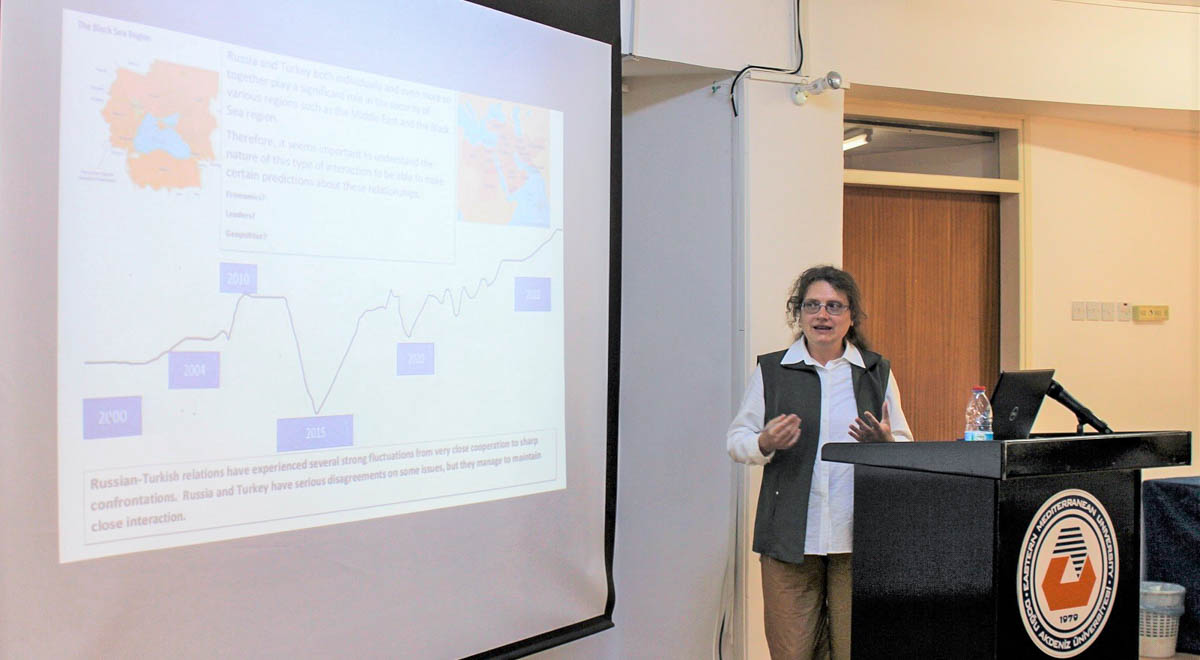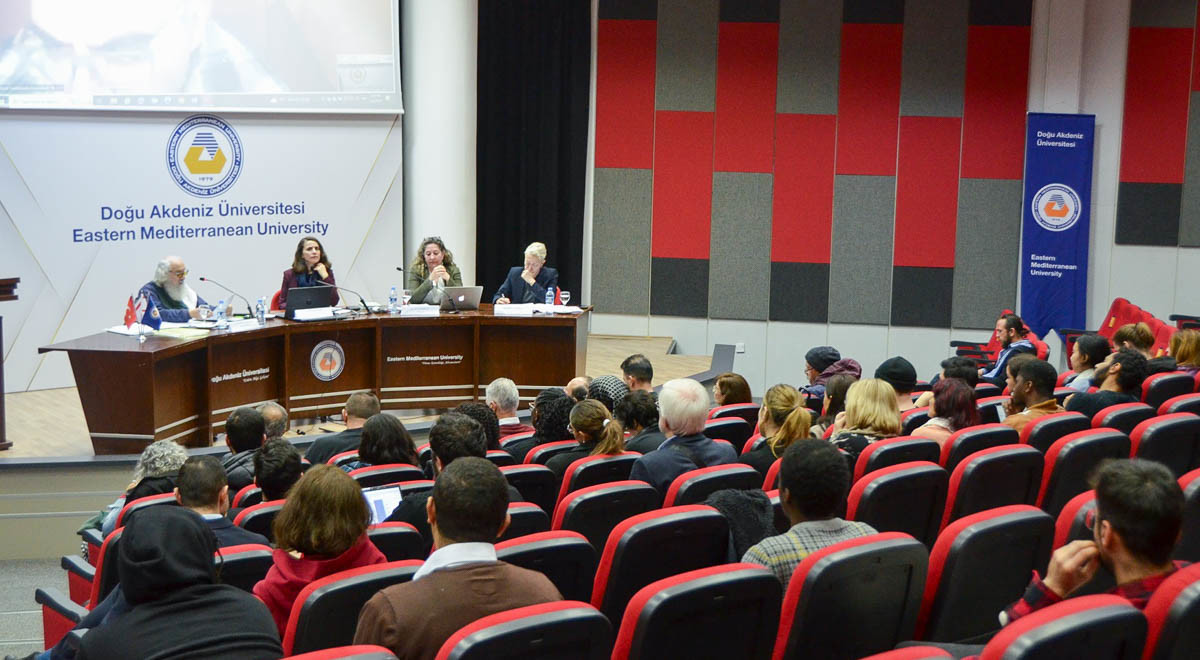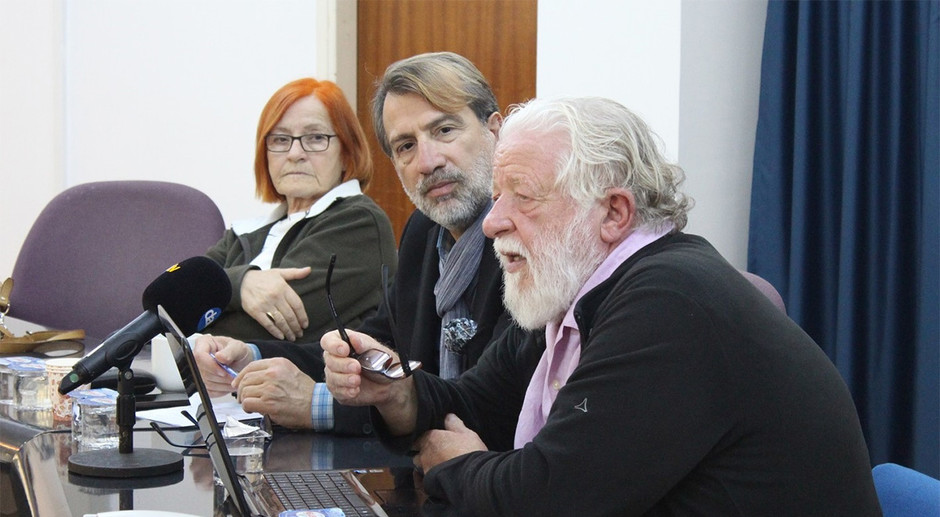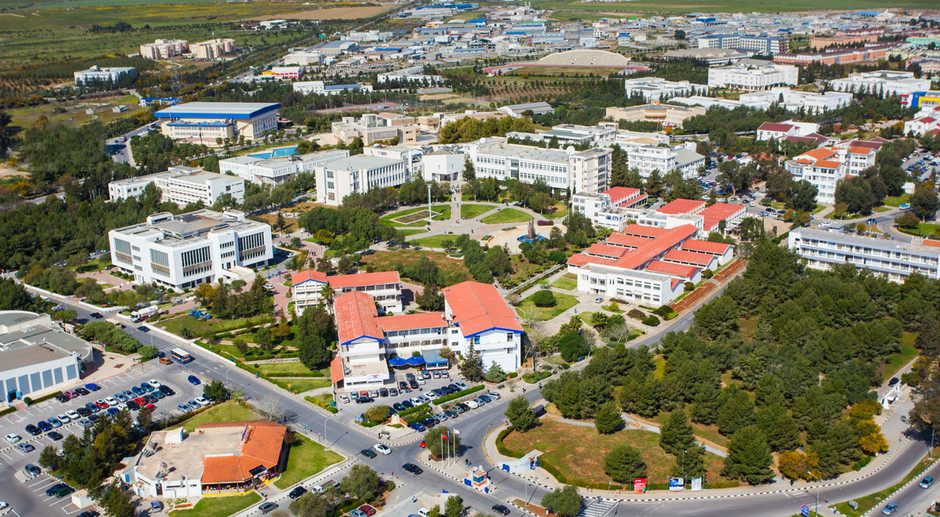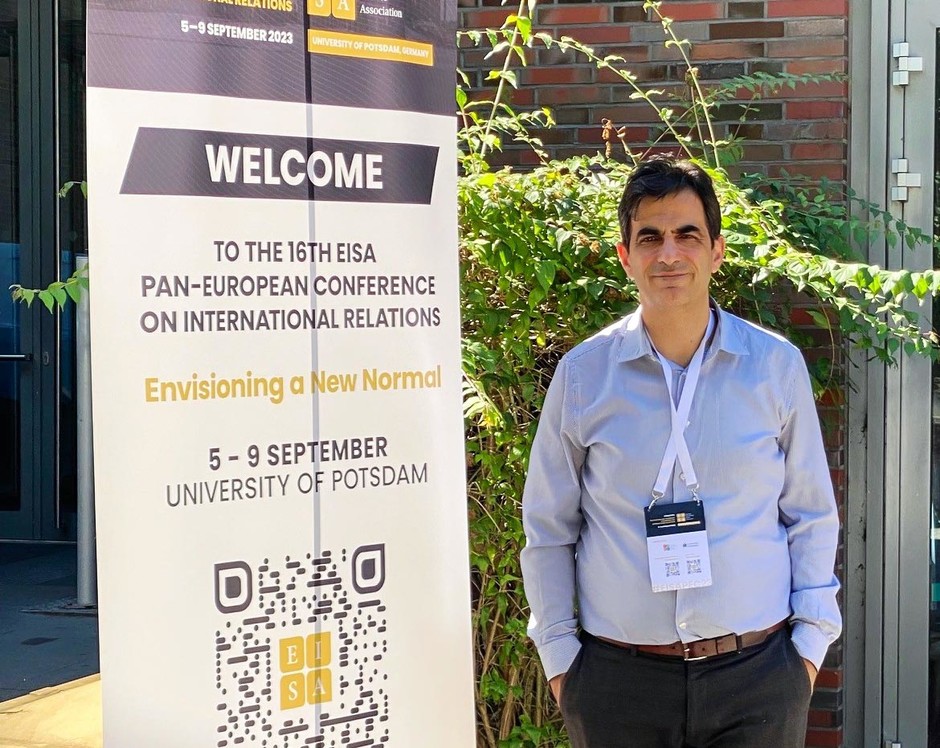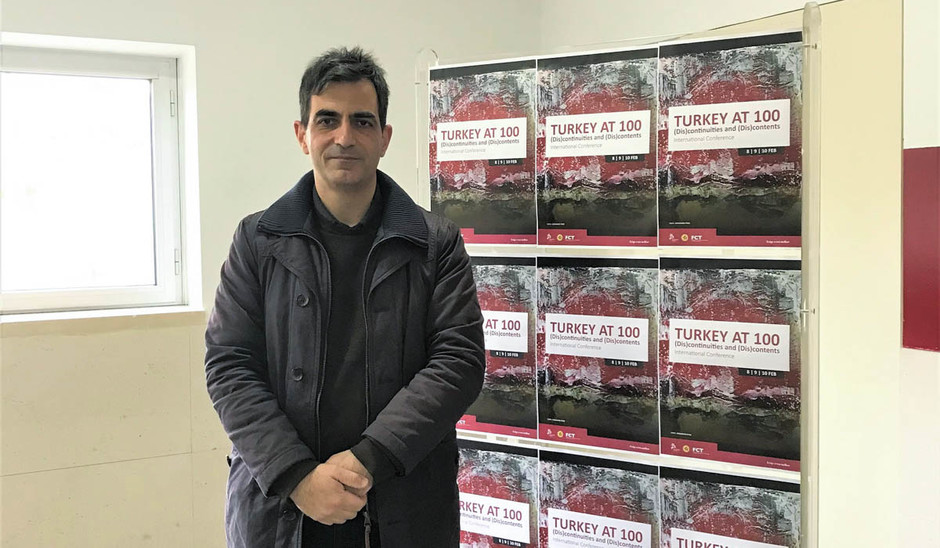Eastern Mediterranean University (EMU) Cyprus Policy Center (CPC) and the Faculty of Business and Economics, Department of Political Science and International Relations organized a seminar titled “Russian-Turkish Relations: Understanding the Unique Conflictual Cooperation”. The opening speech of the seminar was delivered by EMU Business and Economics Faculty, Political Science and International Relations Department and EMU CPC President Prof. Dr. Ahmet Sözen, who introduced EMU Political Science and International Relations Department PhD candidate Vera Liubchak as the speaker of the seminar. Liubchak’s presentation focused on a publication produced jointly with her doctoral thesis supervisor, Prof. Dr. Sözen and presented at the 2023 International Studies Conference held in Canada on 16 March, 2023.
Liubchak started her presentation by explaining that Russian-Turkish relations are constantly changing. In her study, she considered the USA as a global hegemon, Russia as a regional hegemon, and Turkey as a sub-regional hegemon. Stating that according to the power transition theory, the most important factor is satisfaction, Liubchak put forth that countries such as Turkey and Russia are not satisfied with the current status quo and that as the power of the USA decreases, they will try to challenge the current status quo together with countries that have the potential to become hegemon, such as China. Then, Liubchak explained that Turkey and Russia could create a regional balance in the Black Sea and the Middle East.
Liubchak used the theory of hegemony, also known as “matryoshka hegemony”, to explain the contradictory relationship between Turkey and Russia. She stated that the USA, Russia and Turkey in the Middle East and Black Sea Regions are in a multi-level hegemonic structure on the basis of a security policy. Liubchak, who highlighted that both Russia and the USA need Turkey to increase their influence in the Middle East and Black Sea region, put forth that despite this, the potential for conflict increases when both Russia and Turkey aim to increase their level of hegemony.
Finally, Liubchak argued that as the conflict between Russia and the West has increased, Russia became more dependent on Turkey and Turkey's opportunities for regional hegemony increased. At the end of the interactive seminar, Vera Liubchak, under the moderation of Prof. Dr. Ahmet Sözen, responded to questions from the students and talked about how Russian-Turkish relations could be shaped in the future.

